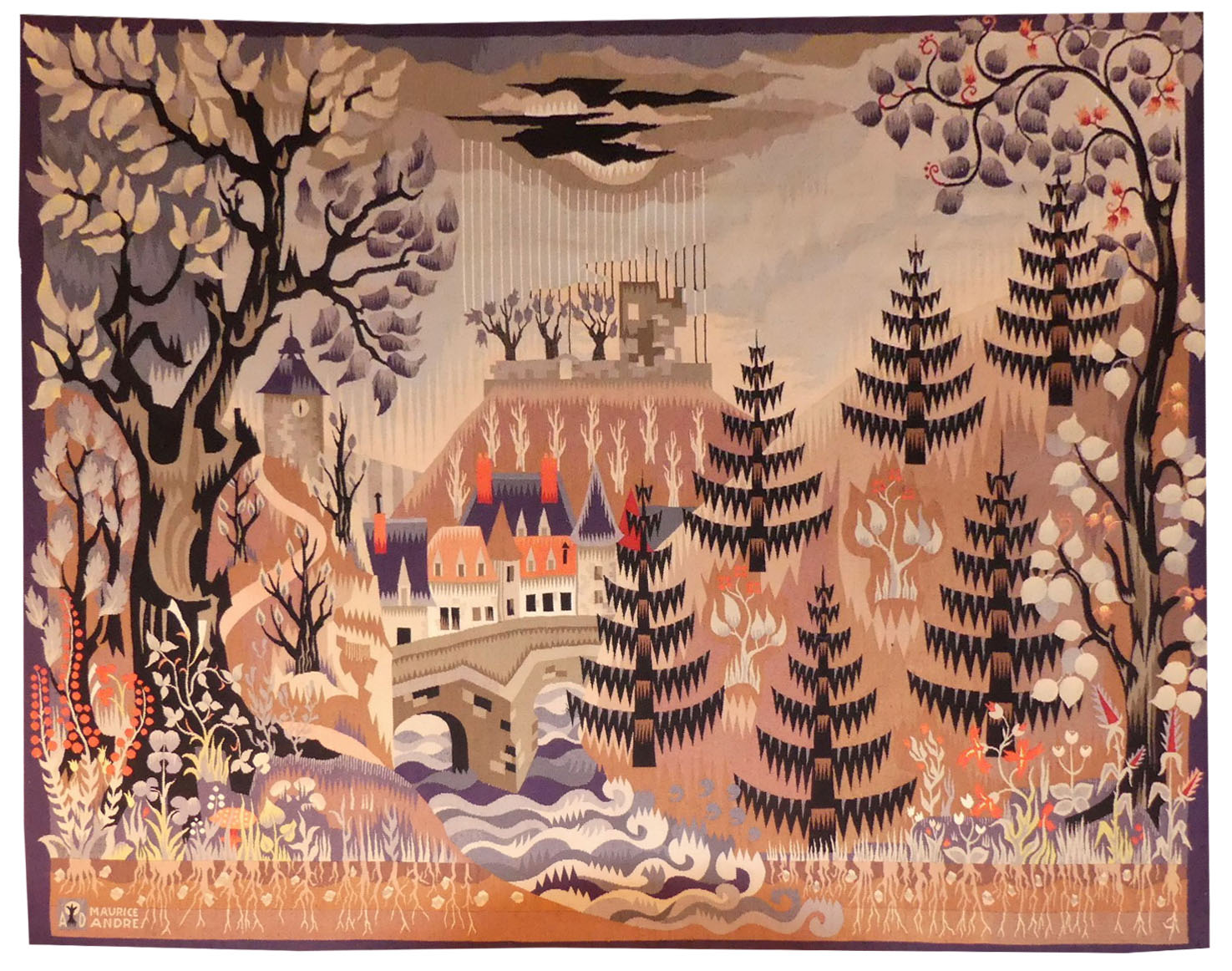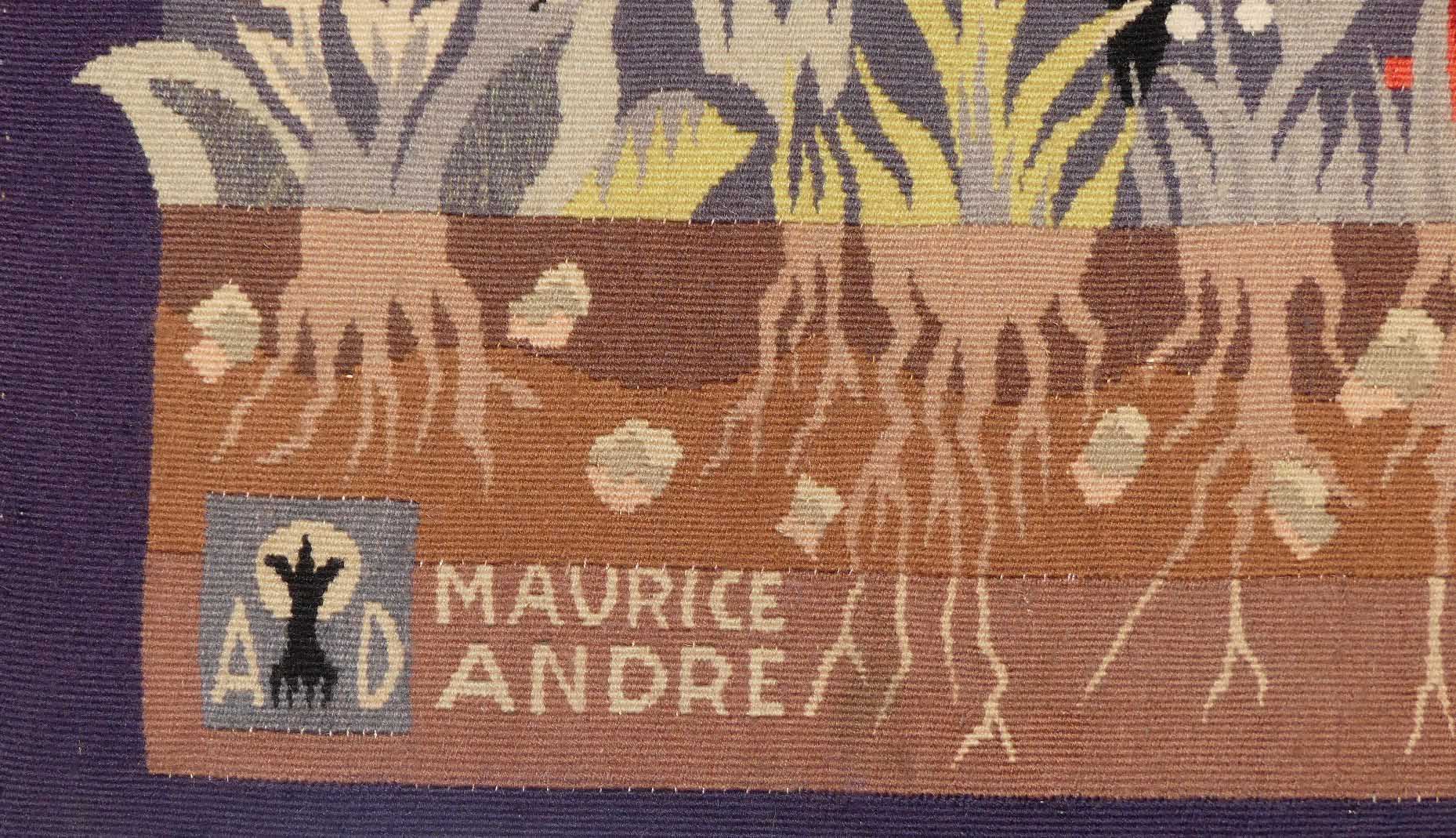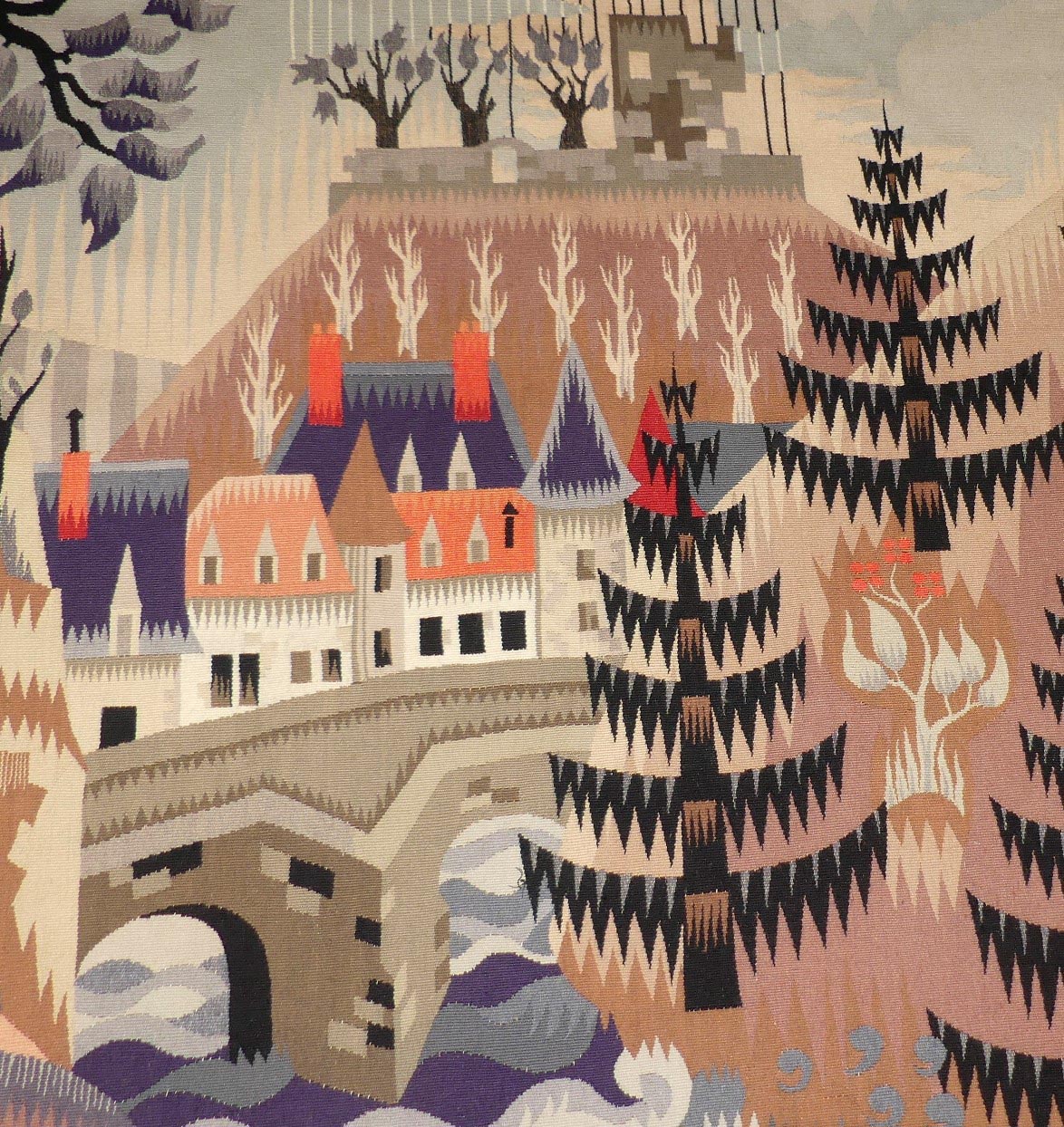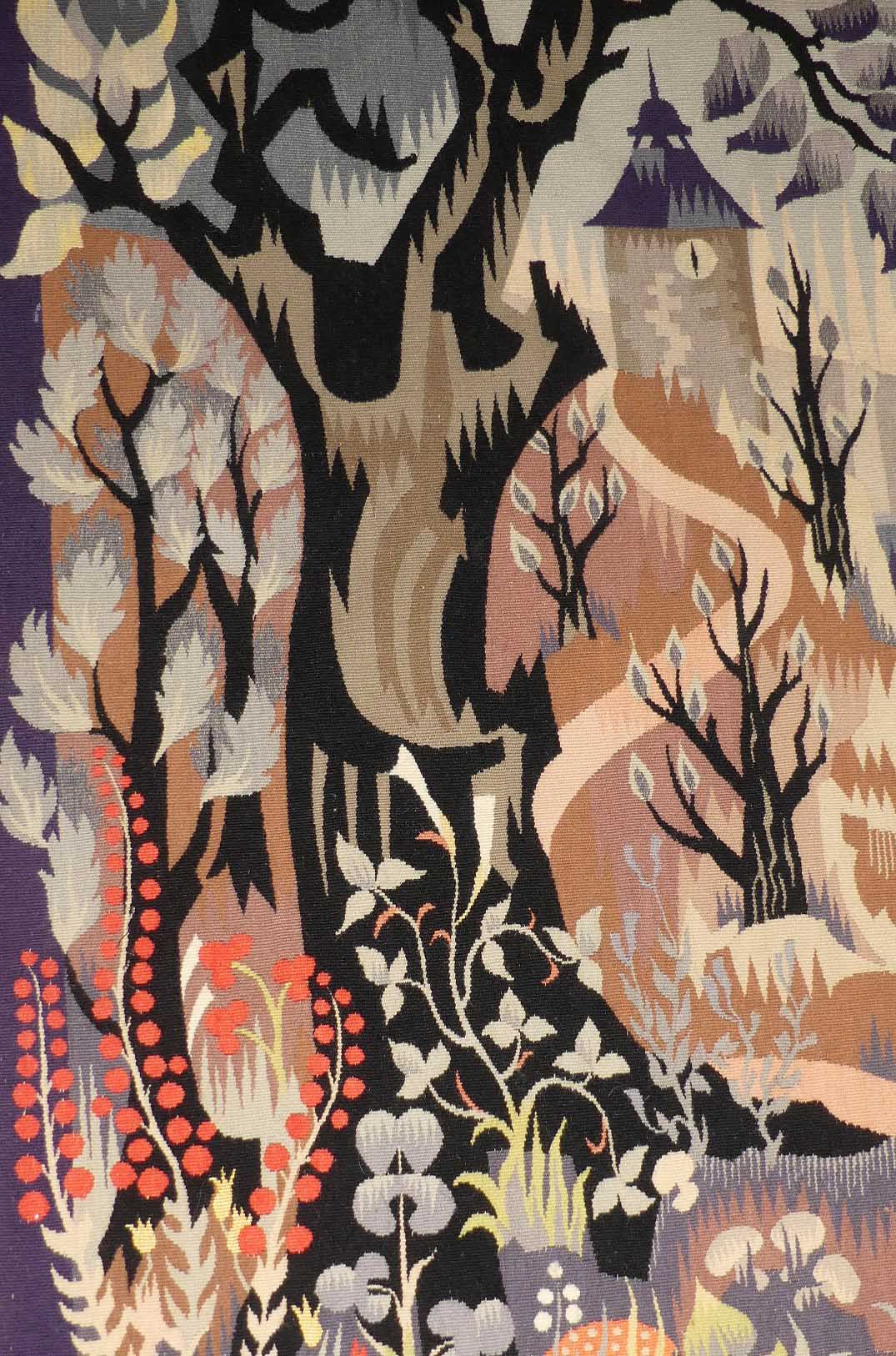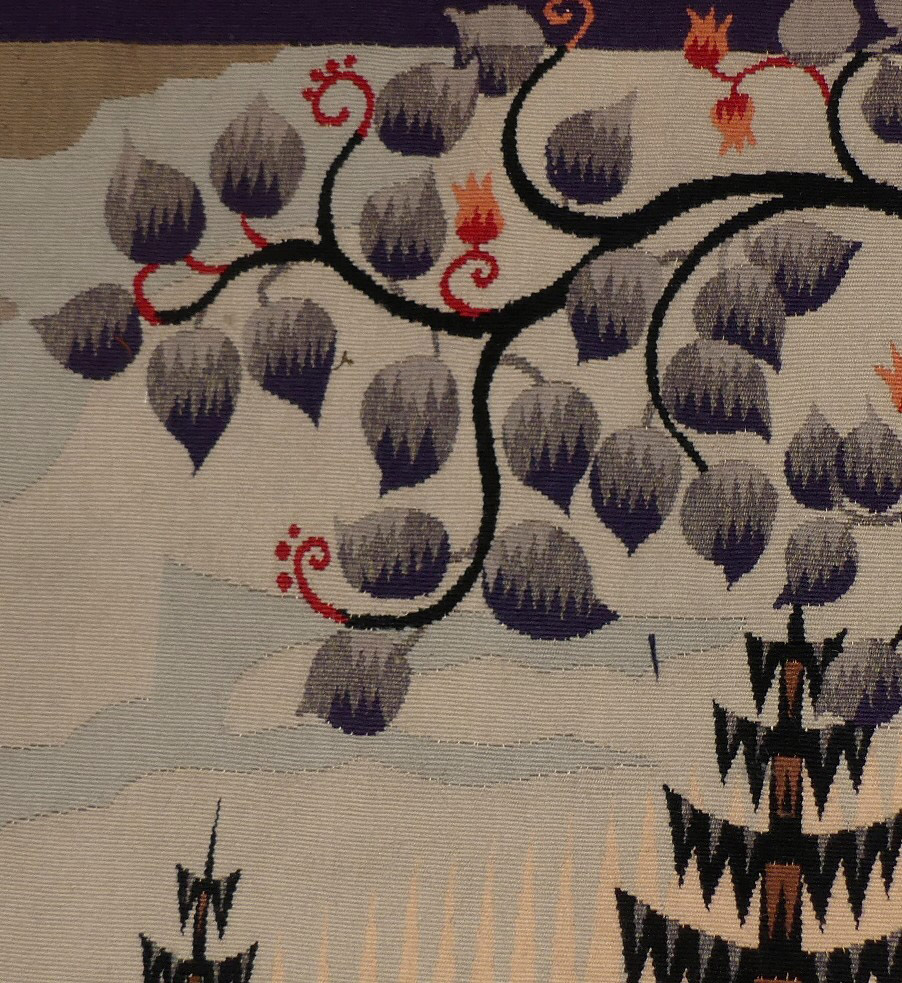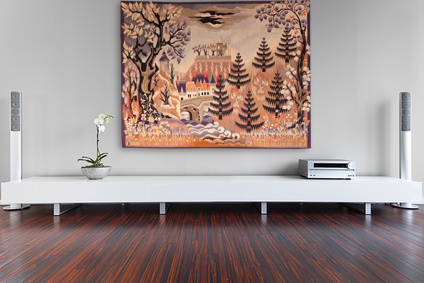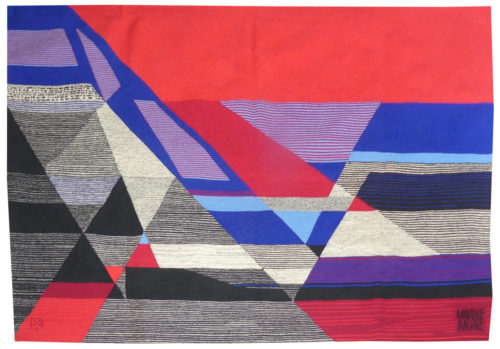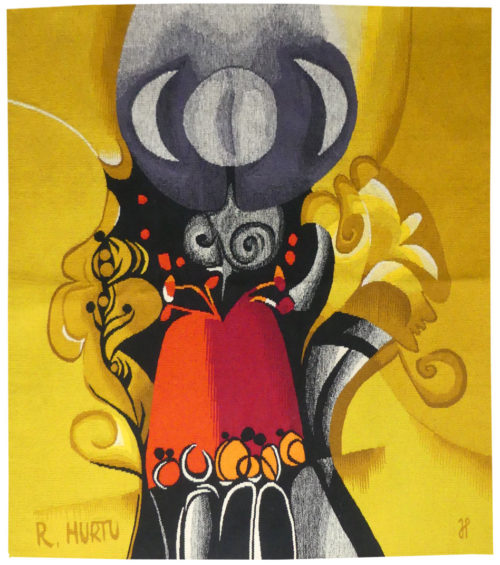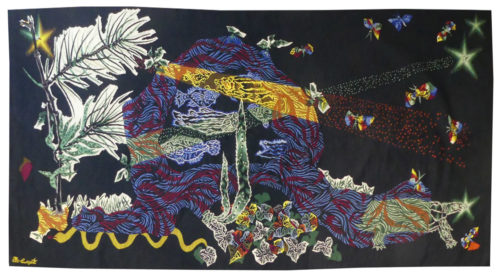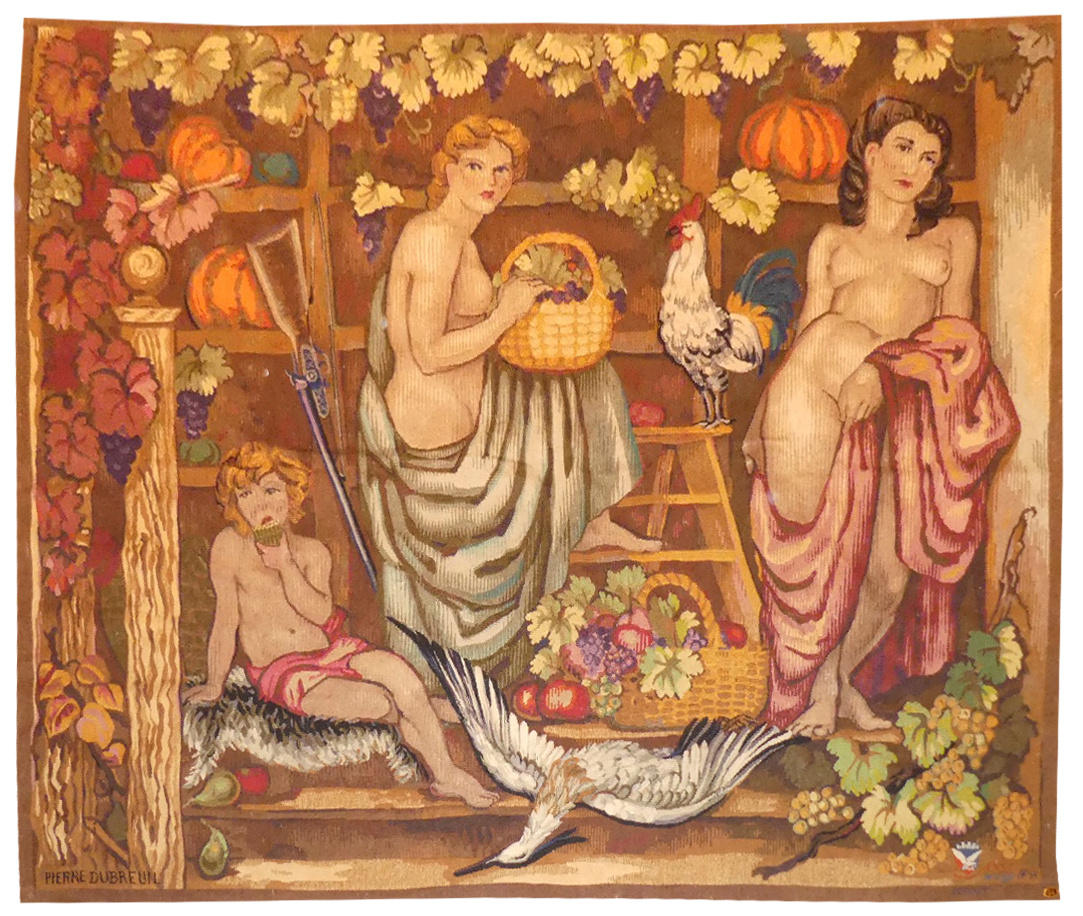Aubusson
Aubusson tapestry woven in the Andraud-Dethève workshop.
1943.
Maurice André settled in Aubusson for the duration of the second world war. A founding member of the group “Tapisserie de France” and a member of the A.P.C.T. (Association des Peintres-Cartonniers de Tapisserie), he developed a personal style, different from that of Lurçat, characterised by rigorous, cubist-influenced flat areas of colour, often using a limited palette ; he received large-scale public commissions for the Council of Europe in Strasbourg (“L’Europe unie dans le Travail et la Paix”) or for the French pavilion at the Brussels Exhibition in 1958 (“La Technique moderne au service de l’Homme”). Gradually (as with Wogensky and Prassinos,…) his style evolved towards more abstraction, firstly lyrical and then more and more geometric, in a way very similar to Matégot.
« Aubusson », Maurice André’s first tapestry cartoon, illustrates both how he adheres to Lurçat’s principles of technique (counted threads, large flat areas of colour…) and how his aesthetic can be seen to be different (as it is from Gromaire’s own treatment of the same subject some years earlier). His closest influence at the time is in fact Dubrueil, his father-in-law, his own stylistic emancipation would come a little later. The historical importance of the cartoon is undeniable : it is one of the rare illustrations of the town (even more synthesised than Gromaire’s version) at a time when the Tapestry Renaissance was in its infancy.


